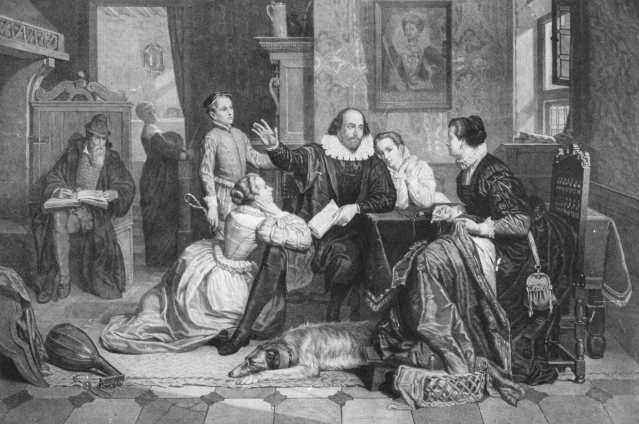“All the world’s a stage, and all the men and women merely players.”
These words, penned by the immortal bard William Shakespeare, doth echo through the annals of time, reverberating in the hearts and minds of those who traverse the ages. Shakespeare’s wisdom, ensconced in the rich tapestry of his prose and verse, remains as pertinent now as in the days of yore. The themes he explored, the passions he portrayed, and the human condition he so deftly dissected, endure in their relevance, offering a mirror to the souls of modernity.
Historical Context
In the Elizabethan epoch, amid the courtly grandeur and the hum of London's bustling streets, Shakespeare wove tales of love, ambition, betrayal, and the frailties of the human heart. His stage was the world, and his characters, mere reflections of the audience’s deepest fears and desires. The themes that burgeoned from his quill — love's triumph and tragedy, the corrupting thirst for power, the inevitable fallibility of man — are threads that continue to weave through the fabric of contemporary life.
Modern Relevance
Lo, the themes of Shakespeare transcend the constraints of time. His musings on love, as depicted in “Romeo and Juliet,” find resonance in the throes of modern romantic entanglements. The fiery passion and tragic fate of the star-crossed lovers mirror the tumultuous relationships of today's youth, ensnared in a world of fleeting connections and profound yearnings.
The ambitious drive for power, so darkly illustrated in “Macbeth,” is mirrored in the corridors of modern politics and corporate boardrooms. The insatiable hunger for dominion, the machinations, and the ensuing chaos are but reflections of a world where the stakes are ever high and the consequences dire.
In “Hamlet,” the introspective prince’s quest for truth and meaning in a seemingly indifferent universe speaks to the existential dilemmas faced by many today. His soliloquies, rich with contemplation and doubt, echo in the silent chambers of those who seek purpose amidst the cacophony of contemporary existence.
Case Studies
Shakespeare’s works find new life in the myriad adaptations that grace stage and screen. The timeless tragedy of “Romeo and Juliet” is reimagined in the musical fervor of “West Side Story,” where the feuding families transform into warring street gangs, yet the essence of their forbidden love remains untarnished.
“The Taming of the Shrew,” with its complex dance of wit and will, finds modern voice in the film “10 Things I Hate About You,” where the battle of sexes is played out in the halls of a high school, yet the sharpness of dialogue and depth of character stay true to the original.
Even in the animated realm, Shakespeare’s influence persists. “The Lion King,” a tale of princely revenge and redemption, draws heavily from the narrative of “Hamlet,” reminding audiences of the universal themes of loss, duty, and the search for identity.
Personal Connection
Forsooth, as one who doth aspire to tread the path of the bard, I find myself entranced by the eloquence and profundity of Shakespeare’s craft. His quill, a conduit of the human soul, hath inspired mine own humble endeavors in the realm of poetry and prose. Residing in the serene environs of Dibrugarh, Assam, I weave my tales, hoping to capture a fragment of the bard’s timeless essence. In the archaic form, I strive to capture the essence of his voice, to breathe life into words that echo the depth and beauty of his timeless art.
Conclusion
In summation, the wisdom of Shakespeare doth traverse the ages, its light undimmed by the passage of time. His exploration of the human condition, and his portrayal of the grand themes that govern our lives, remain ever-relevant, ever poignant. As we delve into his works, we find not merely stories of a bygone era, but reflections of our own struggles, our own triumphs, our own humanity. Thus, let us celebrate the bard’s enduring legacy, and find in his words the wisdom to navigate the complexities of our modern world.

